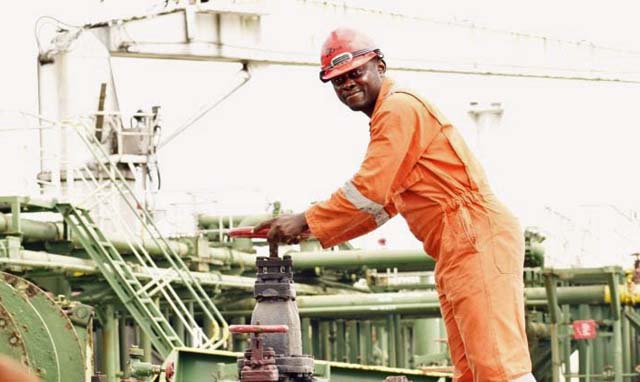According to the International Chamber of Shipping (ICS), African seafarers could be key to the industry’s decarbonised future.
African policymakers are being advised to implement training infrastructure as quickly as possible to maximise high-quality employment opportunities for African workers and facilitate the continent’s green transition. A growing demand has been identified for seafarers able to handle low and zero-carbon fuels (such as hydrogen and ammonia) and new technologies that will be needed in order to progress towards a decarbonized maritime shipping sector by 2050.
ICS says that in the race to zero-carbon shipping, seafarer supply countries that take early action are likely to reap significant socio-economic benefits, and Africa is considered well positioned to be a green seafarer hub.
South African Maritime Safety Authority (SAMSA) Occupational Health & Safety and Maritime Welfare Manager, Sibusiso Rantsoabe, said: “There is currently unprecedented demand for African seafarers and the urgent need to decarbonise creates further opportunities for our workers, who have already demonstrated their excellence in a global setting. Becoming a supply hub of the seafarers of the future is a win-win situation that will not only benefit African countries through the creation of good quality jobs, but the entire world by lowering the environmental impact of human actions. This presents an opportunity for Africa to ensure that we are not left behind but also cement our place as a potential new crewing frontier for shipping.”
The National Seafarer Development Programme (NSDP), run by the South African International Maritime Institute (SAIMI), is empowering the deck, engine room and fishing crew of the future and creating good jobs for workers. SAIMI and the International Maritime Employers Council (IMEC) are also due to launch an IMEC South African cadet training programme.
IMEC CEO Francesco Gargiulo, said: “As an organisation that represents over 260 maritime employers around the globe and works to negotiate fair and sustainable seafarers’ wages and conditions of employment on their behalf, it is clear to us that shipping’s decarbonisation journey will be powered by human beings. The industry is already experiencing a need for sufficient skilled workers to operate modern vessels and this will only continue to grow over the coming years. As a potential major seafarer supply continent, developing the talent of African seafarers offers us a pathway to delivering a greener future for shipping and the wider maritime world.”
International Transport Workers’ Federation (ITF) Africa Regional Secretary, Mohammed Dauda Safiyanu believes that as one of the world’s biggest growth markets with 1.3 billion people and a combined GDP of US$3.5trn, Africa could reap some of the rewards of shipping’s green transition.
Safiyanu said: “Transitioning away from fossil fuels requires additional skill sets that must be properly developed, and while this is definitely a challenge, it is also an opportunity for African countries to develop their own highly skilled seafaring workforces. As part of a Just Transition, these jobs must be decent, which includes meeting the highest health and safety standards. They should also be fairly-paid, bringing economic benefits to the region and thereby improving parity between the global north and the global south. The sooner that we begin investing in green skills, the more likely it is that we can crew the low emission vessels of tomorrow. The future of green shipping in the region must involve high skill, high quality jobs for African seafarers.”
ICS Senior Manager Policy and Employment Affairs, Helio Vicente, said: “Given the mix of low and zero carbon fuels set to power ships in the future, training and upskilling seafarers has never been more urgent. Technology must evolve in step with seafarer skills so that the shift to a greener future is done as safely and efficiently as possible, minimising risk along the supply chain. African maritime leaders must act now to ensure that their workforces are primed for shipping’s green transition.”
The Maritime Just Transition Task Force, which is primarily funded by Lloyd’s Register Foundation, believes that by working together, governments, policy makers, ship owners and operators, seafarers’ unions, and other stakeholders, will maximise the likelihood of a Just Transition.



